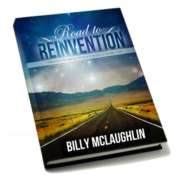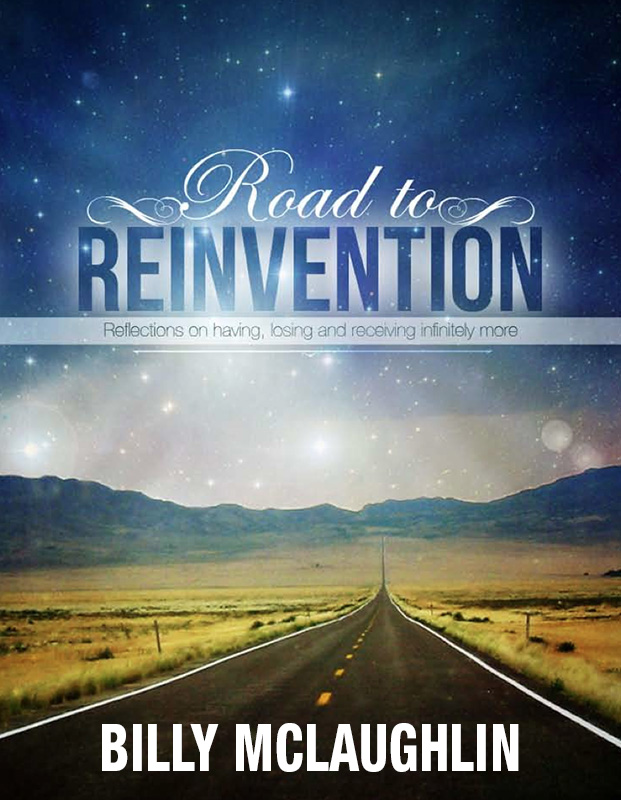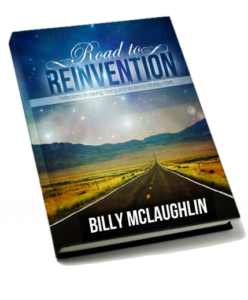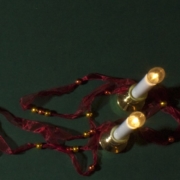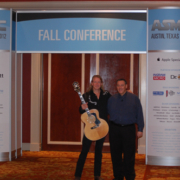To know the gift of reinvention is to know the pain of loss. For me, reinvention hasn’t always been a pleasant experience. It meant something in my life that I depended on was no longer working and I needed to find a way to fill the emptiness that it left behind. My experience with reinvention was born out of necessity and not desire. Over the course of a few years, I’ve had to reinvent the personal, professional, financial and even physical aspects of my life. A little-known neurological condition called focal dystonia took away everything that I thought defined my life when it impaired the use of the fingers on my fret-playing hand to the point where I could no longer play even the simplest melody.
For more than twenty years, I had made it my purpose to be the best acoustic guitarist and composer I could possibly be. I was getting along pretty well—having made it onto Billboard’s top-10 list with my first solo album. I had built my career, reputation and record deals around my unique style and sound. Over the years, as my profession grew, a lot of people came to depend on me including my family, band, booking agent, clients and fans. If you told me at the time that something could come along and wipe all of it away in a matter of months, I would not have believed you. However, that is exactly what happened. As a result of my sudden affliction with dystonia, my ability to play, my record deal, my gigs, my fans, my career, reputation, income, home and family life all disappeared in less than a year.
Having every comfort I had ever known stripped away from me so suddenly and permanently was a harsh reality. The experience, however, taught me something very revealing: There was a distinction between who I was versus what I had. I learned that sometimes the things we accomplish in the past get in the way of who we are and where we are headed. I believe this is true for individuals as well as for businesses. For me, it meant that I needed to let go of what no longer worked in my life. By letting go, I found my strengths and, in fact, I found my voice. I learned that not only was there music inside of me to share; there also was a story. Without the experience, I would never have known how much more deeply people would grow appreciate my music now that they were able to understand the story behind it. I would never have known how much the lessons in my life could inspire others to follow their dreams and overcome what they perceived to be impossible. That is why I often say, “The worst thing that ever happened to me has also turned out to be the best thing that had ever happened.”
In my case, I had no choice but to learn how to let go of the past and reinvent the future. The same is true for lots of people. The loss of a business, a marriage or a family member can happen unexpectedly and permanently change the course of people’s lives. For others, letting go of what’s broken is not so crystal clear because a choice still lingers. Business may drop off, but not disappear altogether. A person may have a valuable skill, but lose the desire to use it. The remnants of a relationship may remain intact, but the connection may have weakened. Memories overshadow what is yet to become and old habits occupy the time and space where new action is needed. Instead of rebuilding systems that no longer work, people often look for ways to repair and preserve them. In the process, they miss the beauty of what will happen next.
This is one of the reasons why I am an advocate of arts education. Artists are familiar with the idea of reinvention. In fact, they live it every day. When artists create, regardless of whether they’re creating music, a play or a painting, they follow the creative process from beginning to end. Since artists live to create, they are driven to reinvent over and over again. Each new creation presents a new challenge that involves seeing whether or not their vision will come to life. Learning the art of reinvention is something that can improve life on many levels. It keeps us from clinging too tightly to past accomplishments and comforts, which can get in the way of unfinished dreams and desires. It also helps us to adapt to changing circumstances around us. Even today, my dystonia is as bad as ever. Had I not learned how to adapt, and play guitar left-handed, my musical career may have disappeared completely.
Every time I step onto the stage, I thank God for the gift of reinvention and my ability to perform once again. I know better than to let myself get too comfortable with the idea, however. My doctors have told me that dystonia could also attack my “good” hand some day. If that day ever comes, I will be better prepared to deal with the situation, as reinvention has become a way of life for me. With it, there will always be the promise of a new beginning.

